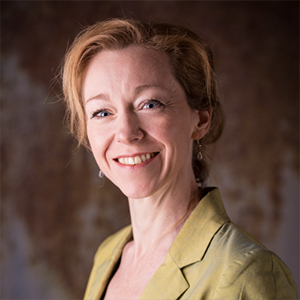
Tara Cutland Green
Dr Tara Cutland Green is a Clinical Psychologist who was trained by Jeffrey Young in 2008. She now offers Schema Therapy, supervision and training across a range of countries. Tara and Dr Gill Heath co-direct Schema Therapy Associates’ certification programme; produced the Schema Therapy Toolkit training video set; and authored the chapter ‘Schema Therapy’ in the The Handbook of Adult Clinical Psychology (2016, Carr & McNulty). Tara, with Anna Balfour, also wrote the chapter ‘Assessment and Formulation in Schema Therapy’ in Creative Methods in Schema Therapy (2020).
Tara has a longstanding interest in the relationship between psychology and Christian faith. Her doctoral research explored how committed Christians’ faith affected how they experienced, coped with and sought help for psychological distress.
She has worked in the NHS across different locations in the UK, in a Personality Disorders service in New Zealand and currently runs a private practice from Yorkshire.
Can Religious Faith Be Incorporated into Schema Therapy to Increase Resilience?
Co-Presented with Ahmed Mahmoud, Oksana Martsyniak-Dorosh, Arinobu Hori
Objectives/Background
85% of the world’s population is estimated to identify with a religion. However, there can be a disparity between the prevalence of religiosity in a country’s general population and its population of psychologists and psychotherapists. For example, Delaney et al (2007) found that in the USA, 75% of the public but only 35% percent of psychologists surveyed agreed that their approach to life is based on their religion. As additionally, religious and spiritual issues and resources are rarely covered in therapy training, we suggest that it is likely that many therapists do not feel equipped to integrate religious clients’ faith into the therapy they offer. Yet this may be an untapped resource that is highly relevant to many clients; empirical studies now point up the role that religious faith plays in increasing psychological wellbeing and resilience (e.g., Koenig, 2012). Some studies attempt to unpack why this is (e.g. Schwalm et al 2021; Cutland, 2000). Distinctions have also been made in the literature between positive and negative religious coping. One study found that positive religious coping reflects a secure relationship with a transcendent force, a sense of spiritual connectedness with others, and a benevolent worldview (Pargament, 2011). Whilst various elements of faith can be important, based on personal and clinical experience as well as research (e.g., Leman et al 2018), Round Table Discussion’s theistic panellists regard attachment relationship with God as central. However, in Buddhism this is not the case and different mechanisms such as fostering a sense of responsibility and agency may be relevant (see e.g., Laurent et al 2021). Practices such as meditation, gratitude and a sense of belonging in a faith community may also be important, irrespective of the specific faith. Tara, Ahmed, Oksana and Arinobu are experienced in actively incorporating aspects of Christianity (Protestant and Catholic), Islam and Buddhism into Schema Therapy with religious clients. They work in different cultural contexts: the UK, the Middle East (UAE and Egypt), Ukraine and Japan.
Method
Panellists will share their perspectives on incorporating clients’ faiths into Schema Therapy assessment, formulation and change methods, referring to research findings where relevant. They will describe examples of how faith has strengthened and empowered clients’ Healthy Adult modes and increased resilience through Schema Therapy methods. They will also address how aspects of faith may impede the development of resilience and present in maladaptive schemas and modes. Part-way through the session the audience will be invited to form small groups to discuss and reflect on the topics have been raised. There will then be ample opportunity for the audience to ask questions to address issues and generate further discussion of relevance to them.
Results/Conclusion
We aim to equip delegates with greater understanding of and ideas regarding how clients’ religious faith can be actively incorporated into Schema Therapy to enhance healthy need-meeting and bolster the Healthy Adult, resulting in increased resilience and schema healing. Delegates will also grow in their awareness and understanding of different cultural contexts and the relevance of these in developing resilience.

